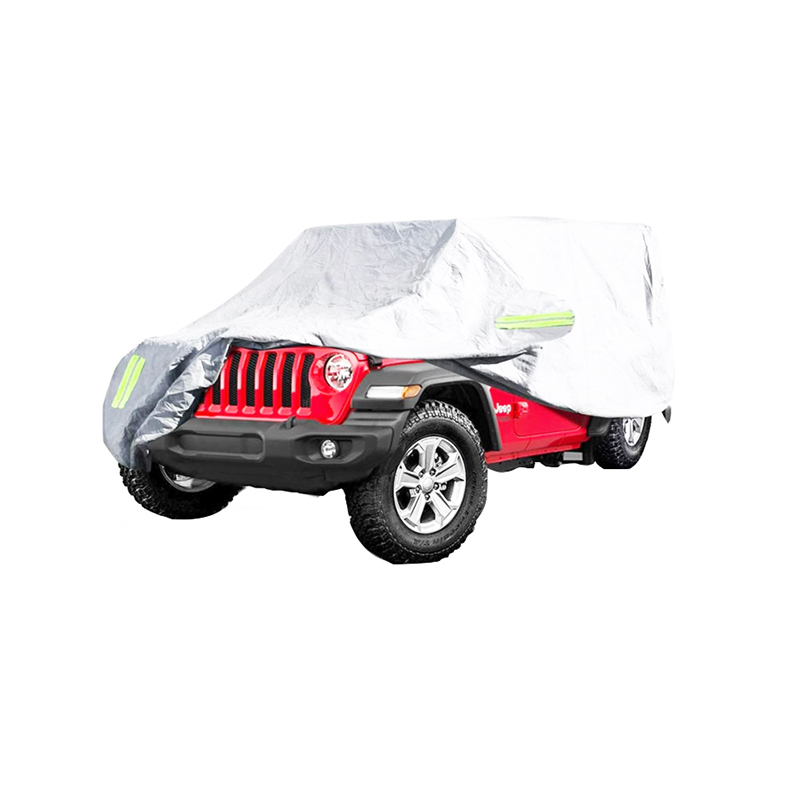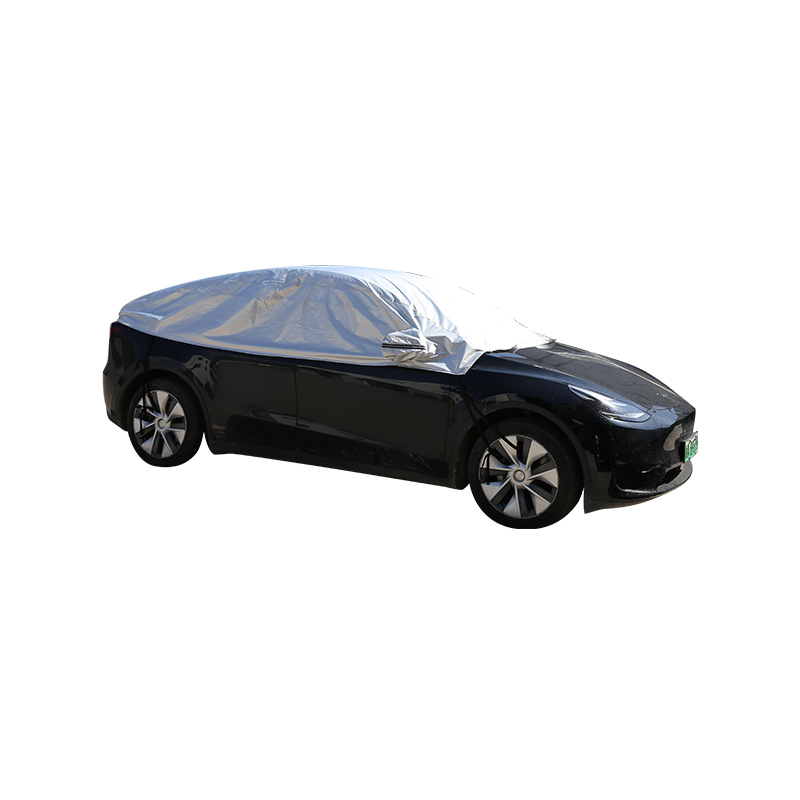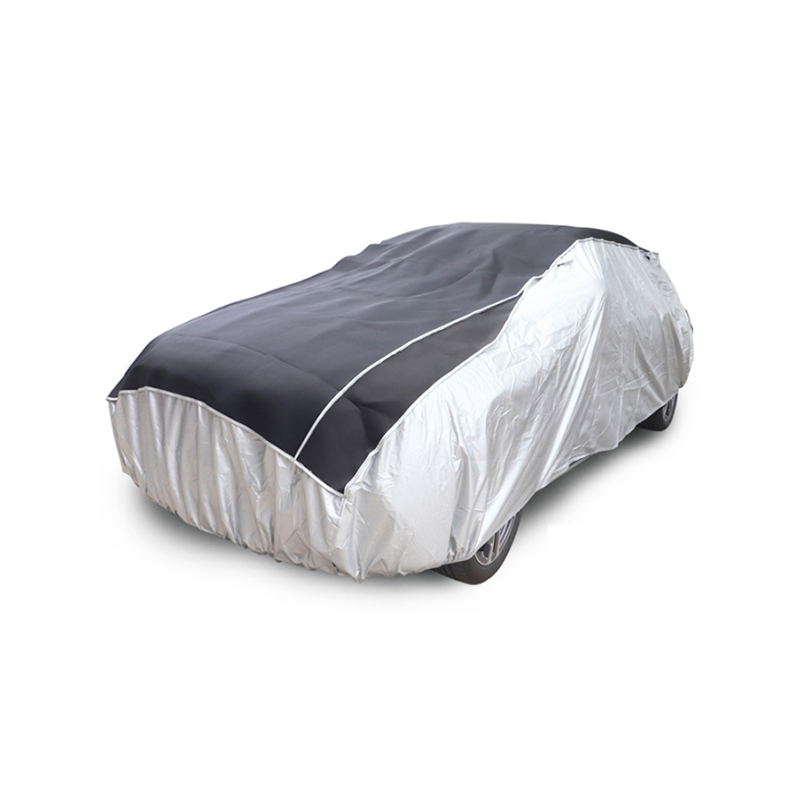Polyester car overalls are the common material on the market. Polyester is a kind of synthetic fiber material, its advantages are strong and wear-resistant, corrosion resistance, not easy to deform, good elasticity, and so on. Polyester is also resistant to high temperature, and ultraviolet radiation, and is not easy to fade. The disadvantage is that it is not breathable, easy to accumulate moisture, dust, and other dirt, and is not easy to clean.
Its strength and wear resistance make it capable of withstanding everyday use and exposure to environmental elements. Additionally, polyester exhibits corrosion resistance, ensuring long-term protection against rust and deterioration.
Due to its non-porous nature, polyester can trap moisture and dust, pilot to the accumulation of dirt and grime. This not only affects the cleanliness of the car but also poses potential risks to the vehicle's paintwork and interior surfaces.
Nylon material car overalls are a relatively new kind of material. Its advantages are light, waterproof, dustproof, breathable, and so on. Nylon material car overalls have a strong ability to protect vehicles. The disadvantages are easy to wear, high temperature resistance, easy aging, easy deformation, and so on.
Its susceptibility to abrasion and easy aging can result in premature deterioration, compromising its protective capabilities. Furthermore, nylon may exhibit deformation when subjected to excessive heat or prolonged exposure to sunlight, diminishing its durability in the long run.
With stronger corrosion resistance and enhanced breathability, polyester fiber car overalls provide improved protection against moisture and dirt accumulation.
The polyester fiber material is similar to the polyester material, but it has the advantage of stronger corrosion resistance, is more breathable, waterproof, and is not easy to deform, and is suitable for use in dry environments. The disadvantages are not high temperature resistance, easy aging, easy deformation, and so on.
PV is a new type of synthetic fiber material, derived from the manufacturing principle of solar panels. Its advantages are UV resistance, wear resistance, waterproof, anti-corrosion, and so on. PV material car overalls are also very breathable. The disadvantage is that the price is more expensive, and it is not suitable for economic owners to buy.
PV material emerges as a cutting-edge option for car overalls, leveraging the manufacturing principles of solar panels. PV material boasts exceptional UV resistance, wear resistance, and waterproofing capabilities, making it highly durable in various environmental conditions. Additionally, its breathability ensures adequate ventilation, preventing moisture buildup and mold growth inside the car cover.
Lastly, PV material emerges as a cutting-edge option for car overalls, leveraging the manufacturing principles of solar panels. PV material boasts exceptional UV resistance, wear resistance, and waterproofing capabilities, making it highly durable in various environmental conditions. Additionally, its breathability ensures adequate ventilation, preventing moisture buildup and mold growth inside the car cover.
Despite its impressive features, PV material car overalls may come at a higher price point compared to other options. This may deter budget-conscious car owners from investing in this premium material, opting for more affordable alternatives instead.
The durability of car overalls depends on various factors, including the material used in their construction. While polyester, nylon, polyester fiber, and PV materials each offer unique advantages and disadvantages, the choice ultimately depends on the specific use environment and preferences of the car owner. By understanding the characteristics of each material, car owners can make informed decisions to ensure the long-term protection and preservation of their vehicles.
 English
English 中文简体
中文简体 Español
Español

 View More >>
View More >> View More >>
View More >> View More >>
View More >> View More >>
View More >> View More >>
View More >> View More >>
View More >>